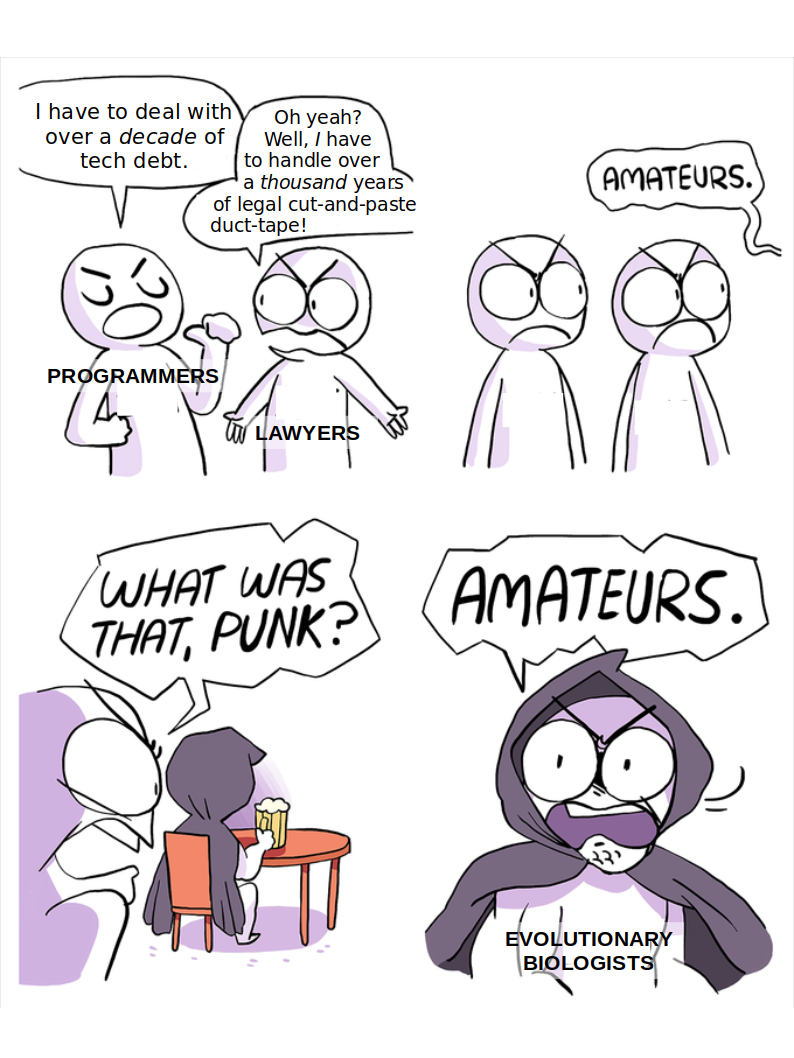this post was submitted on 21 Jan 2024
525 points (97.8% liked)
Programmer Humor
38823 readers
373 users here now
Post funny things about programming here! (Or just rant about your favourite programming language.)
Rules:
- Posts must be relevant to programming, programmers, or computer science.
- No NSFW content.
- Jokes must be in good taste. No hate speech, bigotry, etc.
founded 6 years ago
MODERATORS
you are viewing a single comment's thread
view the rest of the comments
view the rest of the comments

https://xkcd.com/1605/
Seems like there's even some feedback going on between DNA and histones, the protein core the DNA is whirled around.
Oh yes, DNA is more like a reference library than a blueprint. Proteins and other molecules decide what they want, then activate the appropriate genes. Also most of the DNA is stuff that isn't in everyday use - genes that are to be used only under certain circumstances, genes that were once functional but are now deprecated, random DNA that got in by mistake, and stuff that serves no discernable purpose but breaks everything if removed.
Lol, Junk DNA is rarely used functions and deprecated code. :-}
Btw, useless fragments of virus's "imports" are there too, right? And some accidents and jumping sequences too. DNA is wild.
Not a biologist but have to understand some biology and my understanding is that the current consensus is that most of that junk DNA isn't actually junk and serves some purpose. We just have a very poor understanding of what that is or how it works.
Rarely used stuff isn't junk DNA. It is still part of the genome, just expressed only under certain conditions (like stress).
Viral sequences do get embedded in host DNA. Some stay mostly inactive, others keep jumping around (and shuffling our genes in usually harmful but occassionally useful combinations) and yet others actually become useful to the host.